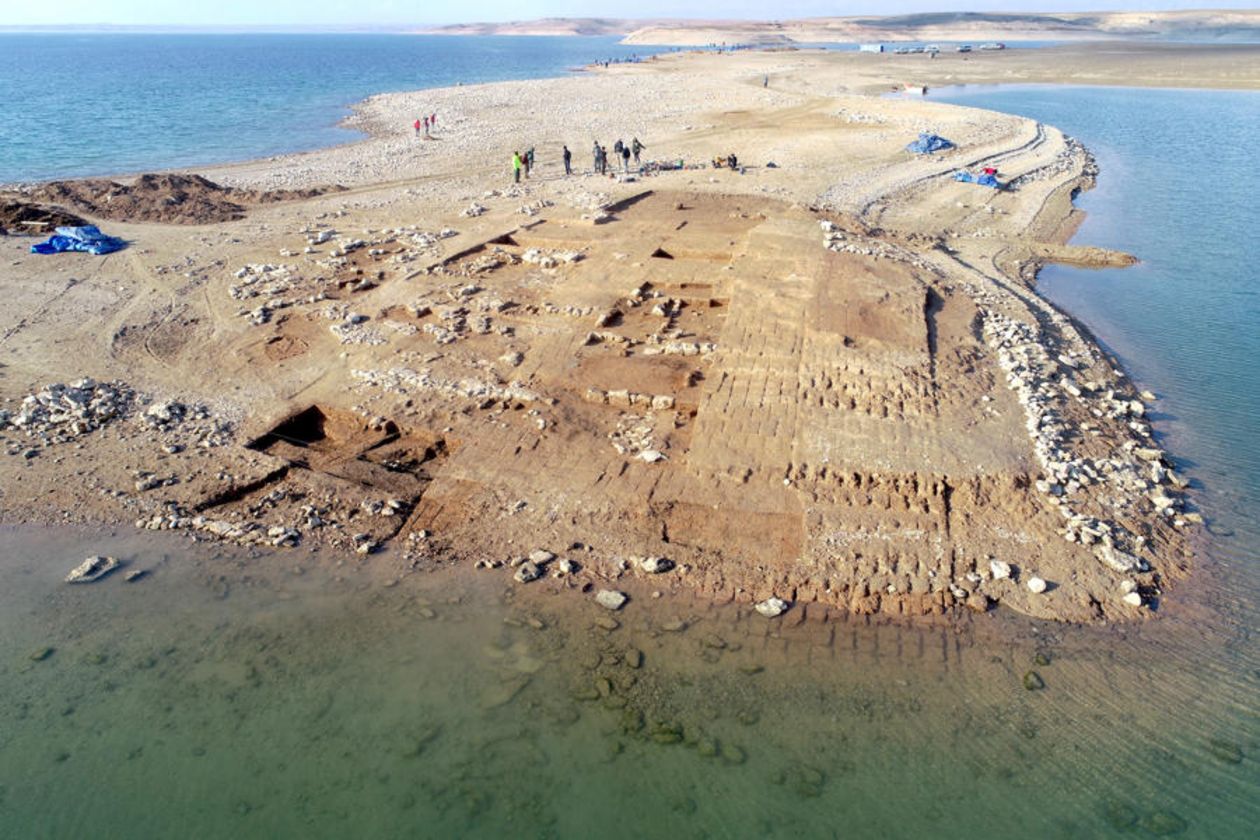 A team of German and Kurdish archaeologists have uncovered a 3400-year-old Mittani Empire-era city once located on the Tigris River. The settlement emerged from the waters of the Mosul reservoir early this year as water levels fell rapidly due to extreme drought in Iraq. The extensive city with a palace and several large buildings could be ancient Zakhiku – believed to have been an important center in the Mittani Empire (ca. 1550-1350 BC).
A team of German and Kurdish archaeologists have uncovered a 3400-year-old Mittani Empire-era city once located on the Tigris River. The settlement emerged from the waters of the Mosul reservoir early this year as water levels fell rapidly due to extreme drought in Iraq. The extensive city with a palace and several large buildings could be ancient Zakhiku – believed to have been an important center in the Mittani Empire (ca. 1550-1350 BC).
Iraq is one of the countries in the world most affected by climate change. The south of the country in particular has been suffering from extreme drought for months. To prevent crops from drying out, large amounts of water have been drawn down from the Mosul reservoir – Iraq’s most important water storage – since December. This led to the reappearance of a Bronze Age city that had been submerged decades ago without any prior archaeological investigations. It is located at Kemune in the Kurdistan Region of Iraq.
This unforeseen event put archaeologists under sudden pressure to excavate and document at least parts of this large, important city as quickly as possible before it was
— source University of Tübingen, University of Freiburg | 30.05.2022